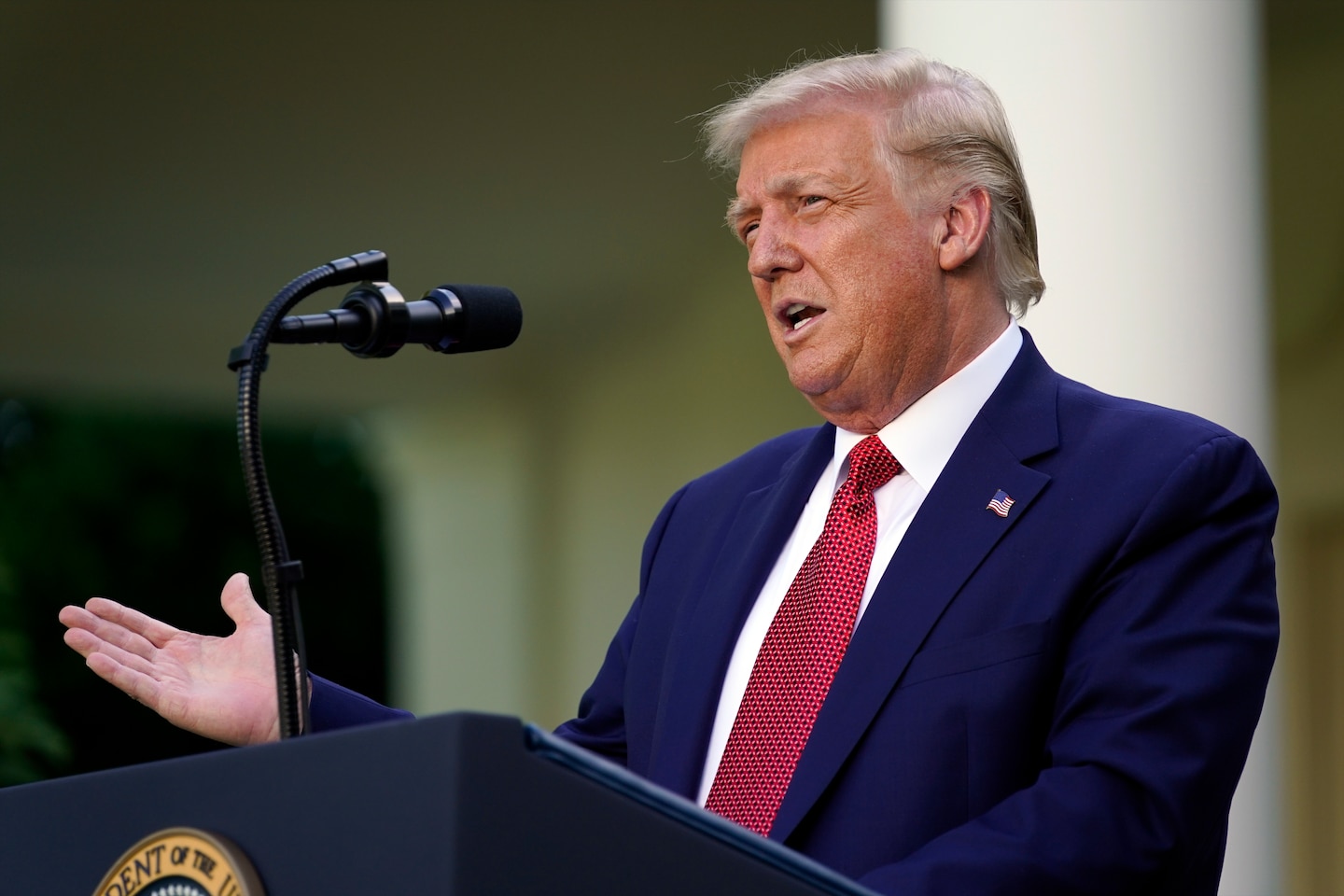Trump shows no interest in acknowledging, much less addressing, anti-black police violence

“Why are African Americans still dying at the hands of law enforcement in this country?” Herridge asked Trump.
“And so are white people,” the president replied. “So are white people. What a terrible question to ask. So are white people — more white people, by the way. More white people.”
It is true that in absolute numbers, more white people are killed in America than black people. Of those shot and killed by police since 2015, 45 percent were white, while 23 percent were black, according to a Washington Post analysis last month.
However, white people make up 60 percent of the U.S. population, while black people are only 13 percent. Therefore, black people are fatally shot by police at a higher rate than white people.
It is not clear whether Trump knows this. But what is clear is that he rejects the premise of the calls of many Americans who want police to confront anti-black racism. This is not all that surprising, as he has indicated repeatedly that he is not deeply concerned about the issues that demonstrators seek to highlight.
While the president offered his condolences to Floyd’s family shortly after his death, it was not long before Trump was leveling accusations against those Americans calling for changes in policing — and in the White House. He accused protesters of being primarily motivated by their dislike of him and even suggested that some could be affiliated with the anti-fascist movement antifa, an unofficial group that does not trust the government or law enforcement to combat white supremacy.
Trump went on to attack the Black Lives Matter movement, which seeks to eradicate police violence against black people, despite the growing number of Americans showing support for the movement and its protesters. The most recent Washington Post-Schar School poll shows that nearly 3 out of every 4 Americans support the protests. Just two years ago, only 40 percent called themselves supporters of the Black Lives Matter movement in a Washington Post-Kaiser Family Foundation poll.
This is not the first time Trump has dismissed the argument of these activists. During the 2016 election campaign, he criticized Black Lives Matter women who interrupted the rally of Sen. Bernie Sanders (I-Vt.), who was running for the Democratic presidential nomination, and suggested that if the activists did the same to him, he might end up fighting them himself.
Based on his past comments and positions, it is fair to assume that one intention of the president might be to empathize with police officers who feel targeted in this moment. On multiple occasions, Trump has expressed his support for law enforcement officers, a voting bloc that has shown high support for Trump in the past. And he has even appeared at times to greenlight police violence. In 2017, while speaking to a group of law enforcement officers on Long Island, Trump told them not to protect suspects from being injured while arresting them.
“When you guys put somebody in the car and you’re protecting their head, you know, the way you put their hand over?” he said while imitating an officer protecting the head of a suspect entering a squad car.
“Like, don’t hit their head, and they just killed somebody — don’t hit their head,” Trump added. “I said, you can take the hand away, okay?”
But Trump’s words perhaps were also meant to dismiss accusations of racism, something that he faces regularly, considering that most Americans believe that he is racist. And racial matters aside, his response leaves the impression that he may not be taking seriously an issue that many Americans deem concerning regardless of the race of the victim — police violence. As The Post’s Philip Bump wrote, the “defund the police” movement has expressed concern about law enforcement using excessive violence against people of all races and ethnicities.
In addition to rejecting the premise of the activists, Trump appears to be leaning into what amounts to his primary campaign strategy: appeasing his base. Trump won the White House in 2016 in part by appealing to the “cultural anxiety” of his base, a mostly white group of voters disappointed with how America’s changing ethnic makeup was shaping conversations and world views about cultural issues — including racism — across the country. Even before Trump’s election, the relationship between black Americans and police discomfited some of these voters, many of whom have favorable views of law enforcement.
Trump, who many polls show is trailing his rival, former vice president Joe Biden, is constantly saying and doing things he hopes will translate into high enough turnout among these voters to ensure he is reelected this fall. The challenge for the president is that most voters aren’t in his base, and most Americans actually believe that anti-black racism in law enforcement is a real issue that needs addressing.
And with Trump demonstrating that he does not, it’s fair to assume that he won’t do enough to convince these voters that he is the best person to respond to what many consider a national crisis — and as a result will likely not get their votes.






